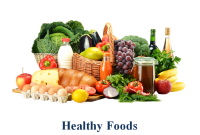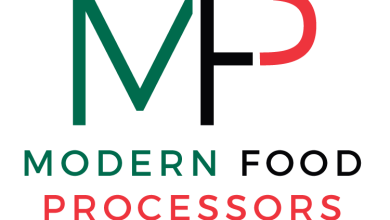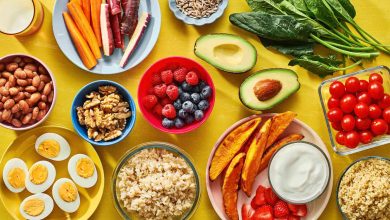Healthy foods:
Healthy food consists of foods that give the body the vital nutrients it needs to stay healthy and promote overall wellbeing. While being relatively low in harmful ingredients like added sugars, trans fats, saturated fats, and excessive sodium, these meals are often high in vitamins, minerals, fiber, and other good nutrients. A healthy diet that is balanced and diverse that contains a variety of nutritious foods can support a robust immune system, promote good physical and mental health, and help prevent chronic diseases.
Here are a few traits of nutritious foods:
- Nutrient-Dense:
- Essential elements like vitamins (such vitamins A, C, D, E, and K), minerals (like calcium, iron, and potassium), protein, fiber, and healthy fats are abundant in nutritious foods.
- Variety of Fruits and Vegetables:
- Colorful fruits and vegetables, which offer a diverse range of vitamins, minerals, and antioxidants, make up a sizeable percentage of a balanced diet.
- Lean Proteins:
- For the body to function properly and to repair and grow muscles, lean sources of protein including poultry, fish, legumes, nuts, and seeds are crucial.
- Avocados, almonds, pecans, and olive oil are a few examples of foods high in healthy fats that help strengthen the heart and brain.
- Dairy goods or alternatives to milk:
Low-fat or fat-free dairy products, as well as fortified milk substitutes (such almond milk and soy milk), contain calcium and other nutrients crucial for bone health. - Moderation and Portion Control:
- Maintaining a healthy weight and avoiding overeating are made possible by consuming wholesome foods in moderation.
- Minimized Processed Foods:
- Consumption of processed and ultra-processed foods that are high in added sugars, salt, and harmful fats should be avoided and whole, minimally processed foods should be prioritized in a healthy diet.
- Hydration:
- A healthy diet must include water since it helps with digestion, controlling body temperature, and other bodily functions.
- Balanced Diet:
- A balanced diet is one that takes into account a person’s age, sex, amount of exercise, and particular health needs.
It’s crucial to keep in mind that each person has specific dietary demands, and consulting with a healthcare professional or registered dietitian can help you develop a personalized healthy eating plan based on your particular needs and fitness goals. Cultural and personal food tastes must also be taken into consideration for a nutritious eating routine to be long-lasting and pleasant.
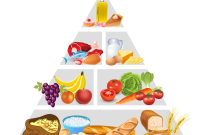
What are the top healthiest foods?
It can be difficult to come up with a precise list of the “top 25 healthiest foods” because it depends on each person’s dietary requirements, tastes, and nutritional standards. I can, however, offer a wider range of 25 foods that are commonly regarded as being very nourishing and healthy:
- Leafy Greens (e.g., Spinach, Kale, Swiss Chard):
- low in calories while being rich in fiber, vitamins, and minerals.
- Berries (e.g., Blueberries, Strawberries, Raspberries):
- Rich in vitamins, fiber, and antioxidants, with possible advantages for the heart and brain.
- Broccoli:
- high in antioxidants, fiber, and vitamins C and K.
- Salmon:
- a first-rate source of high-quality protein and omega-3 fatty acids.
- Quinoa:
- a fiber-, vitamin-, and mineral-rich complete protein.
- Nuts and Seeds (e.g., Almonds, Chia Seeds, Flaxseeds):
- Offer wholesome proteins, lipids, vitamins, and minerals.
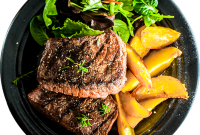
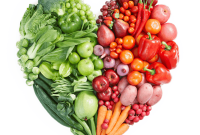
Choosing a variety of these nutrient-rich meals can support a healthy lifestyle and improve overall health. Always seek the advice of a qualified medical professional or nutritionist for personalized nutritional advice based on your unique needs and health goals.
Healthy food elements:
The term “healthy food elements” refers to the vital ingredients and substances included in foods that support general health and wellbeing. These elements include a range of nutrients, substances, and parts that are essential for the body’s healthy operation and maintenance. These are the main components of a healthy diet:
- Vitamins:
- Organic substances that are absolutely necessary for all biological processes, including growth and development.
- Minerals:
- Inorganic nutrients needed for a variety of body processes, such as muscular development, fluid balance, and bone health. Calcium, iron, potassium, magnesium, zinc, and selenium are a few examples.
- Carbohydrates:
Fuel for the body’s muscles and brain comes from carbohydrates.
- Healthy Fats:
- Omega-3 and omega-6 fatty acids are examples of essential fatty acids that are crucial for heart health, cognitive function, and general well-being.
- Phytonutrients:
- Plants include bioactive substances with a variety of health advantages, such as antioxidant, anti-inflammatory, and immune-stimulating qualities.
- Water:
- Important for digestion, controlling body temperature, hydration, and other biological processes. An essential component for good health is water.
- Enzymes:
- proteins that speed up bodily chemical processes, supporting metabolism, digestion, and other physiological functions.
- Amino Acids:
- Organic substances that serve as the basis for proteins and are essential for many body processes, such as the production of hormones and enzymes.
- Micronutrients:
- The body needs essential vitamins and minerals in modest amounts for a variety of physiological activities and overall wellness.
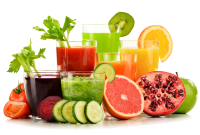
Including a variety of foods rich in these beneficial nutrients can help you maintain a well-rounded and balanced diet that will support your optimum health and energy. To satisfy your unique nutritional demands, it’s crucial to maintain a varied and balanced diet that consists of a variety of nutrient-dense foods.
Thanks.
